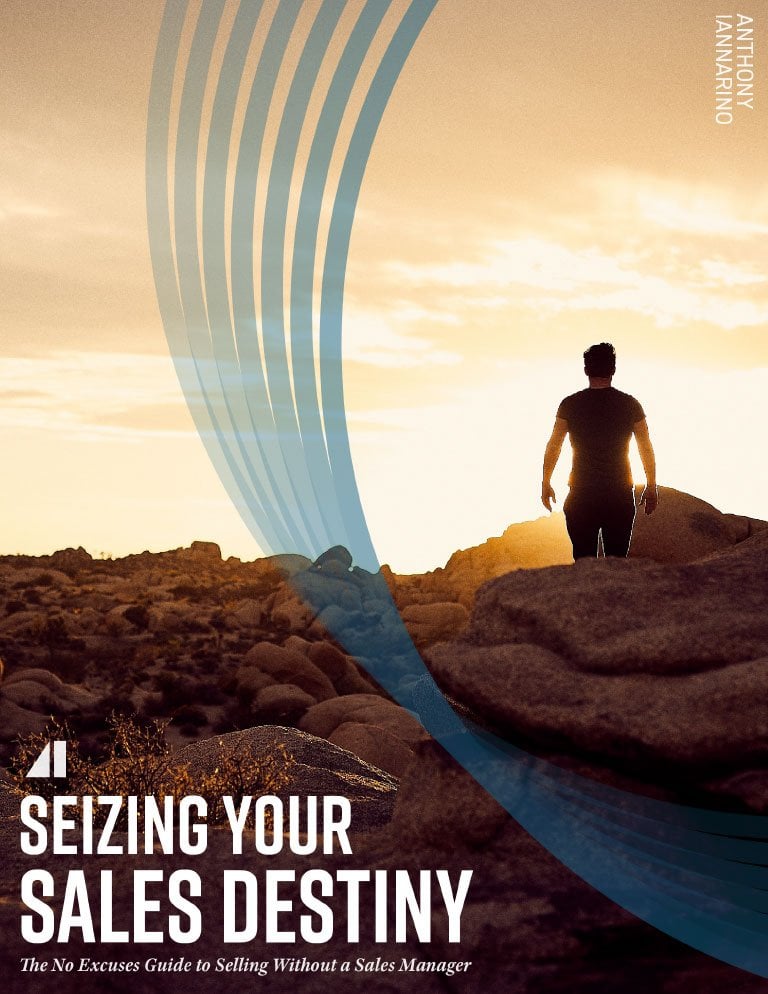There are a lot of bad salespeople in the world. Few of them match the caricature: pushy brutes who use high-pressure tactics to force their unsuspecting victims to buy whatever it is they sell. But if all you read is social media, you might easily believe that sales hasn’t evolved in the last forty years, and that selling is something that you do to someone, not for someone or with someone, and certainly not with a strong desire to help your prospective clients.
There is a cottage industry of commentators who criticize salespeople and contribute to negative sales stereotypes, most of which are not only inaccurate but betray a poor knowledge of sales—even when the commentator works, in theory, on improving sales. Beyond the negative stereotypes they peddle, there’s a much simpler—and infinitely more accurate—explanation for why salespeople sometimes behave in ways that harm their results and alienate the very decision-makers and decision-shapers they are trying to serve.
First, Do No Harm
One of the critics’ favorite slogans is “stop selling and start helping.” Whenever you see that, you know the author doesn’t understand what salespeople actually do. Otherwise, they wouldn’t suggest that there is a difference between selling and helping people. What exactly do they think salespeople are doing when they are selling? Do they believe they are somehow harming people when they sell them something?
For feedback to be useful, it needs to be specific and actionable—if it can fit on a bumper sticker, it’s unlikely to deepen someone’s understanding or improve their skills! Instead of telling salespeople to “stop selling,” a pithy slogan that offers nothing of value and no path to useful action, these critics should explain how they go about helping their prospective clients by creating value for them in every interaction.
After all, the reason so many salespeople struggle to help their prospective clients is rarely that they want to pitch the client a product without creating any real value for them. It’s mostly because they lack the knowledge and mechanics to engage in a better, modern approach to consultative selling.
The Critic and Their Critique
I do my own share of criticizing salespeople, of course, but I never do so without also offering advice on how to improve the mindset or behavior I’m critiquing. There are others, however, who lambaste salespeople on their social channels, shaming them for the mistakes they make. Some of these critics have never had a role in sales, yet they supposedly find themselves possessed with the innate ability to judge a salesperson’s actions.
While it’s true that publicly shaming inexperienced salespeople may cause them to stop doing something, it does nothing to help them improve their approach. When a salesperson reaches out over LinkedIn with a straight pitch, for example, privately suggesting that they might want to improve their targeting or try to create value before trying to capture value can be genuinely valuable in helping them understand how to improve their results.
But broadcasting that person’s professional shortcomings to all your followers is far less about helping them and far more about trying to make yourself look better.
Salespeople use poor approaches, e.g. LinkedIn spamming, mainly because they are following some other salesperson’s (bad) example. Helping them improve requires a more compassionate approach, one that provides them with a better way to target and schedule meetings with their dream clients. It takes more effort and energy to create content that provides guidance, and it also takes a certain level of respect for the individual who is trying to figure out how to sell.
High-Pressure Tactics
At a conference a few months ago, I watched a salesperson pressure three people to buy a big-ticket item by putting them on the spot in front of a group of people. The idea was to make them too embarrassed to say no to the sale. Now, I’m confident that what they bought will help them in the future. But I’m even more sure that they only paid because they were too weak to fight back against someone that they perceived as more powerful.
Relying on force to win a sale is a sign of weakness: it’s what you do when you are not good at selling. That kind of bullying makes me physically ill, so I left the conference right away, having seen quite enough.
I doubt that most people who write about sales have ever experienced a hard sell or a high-pressure sale. What they complain about is salespeople who pitch their product before they should, a common problem, in part because there are always new people entering the sales profession. That problem goes back to beliefs: why does the salesperson believe they need to pitch the product instead of engaging the client in a conversation?
In my view, most salespeople who pitch too early aren’t yet capable of engaging in a value-creating sales conversation, because they believe that their solution alone is capable of helping their prospective clients. Their intentions are good, even if their strategy is woefully incorrect.
No matter how long you’ve been in sales you should ignore critics who offer sweeping condemnations of the profession as a whole, or who don’t provide audiences with something that might help them improve results. They’re just in it for the attention.

Get the Free eBook!
Learn how to sell without a sales manager. Download my free eBook!
You need to make sales. You need help now. We’ve got you covered. This eBook will help you Seize Your Sales Destiny, with or without a manager.
Download Now







.jpg?width=768&height=994&name=salescall-planner-ebook-v3-1-cover%20(1).jpg)


